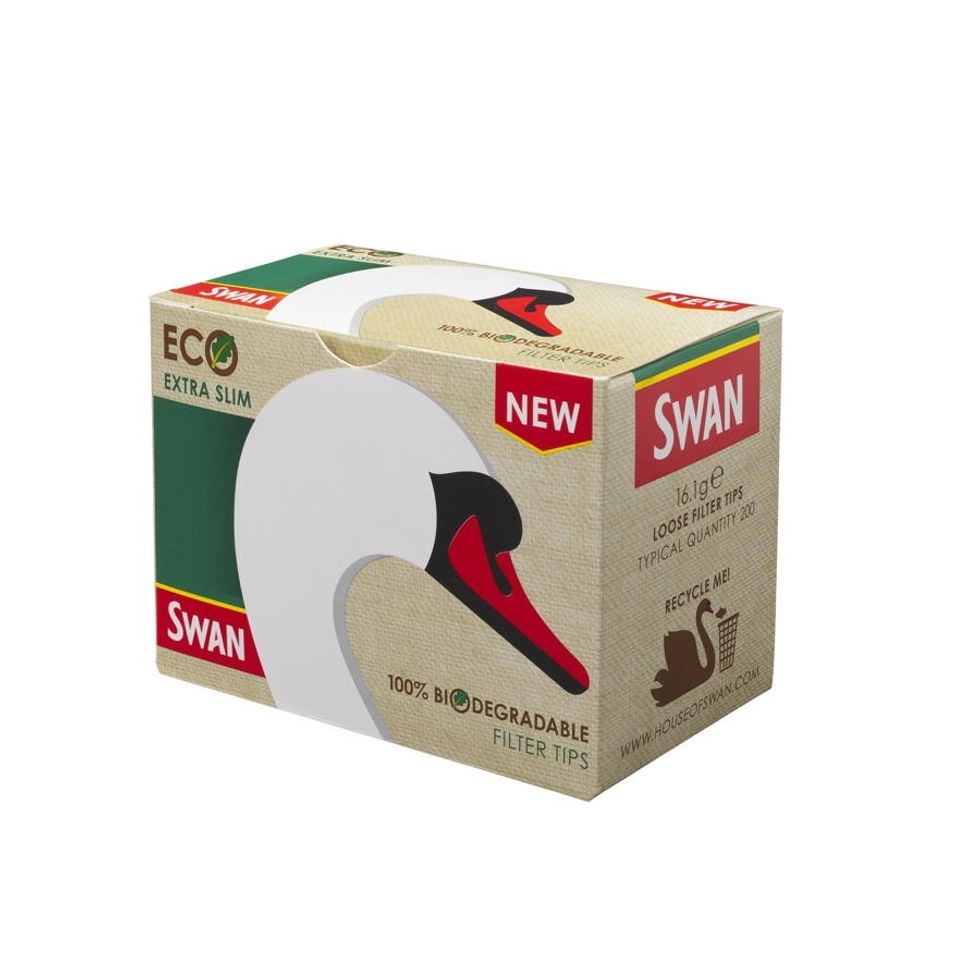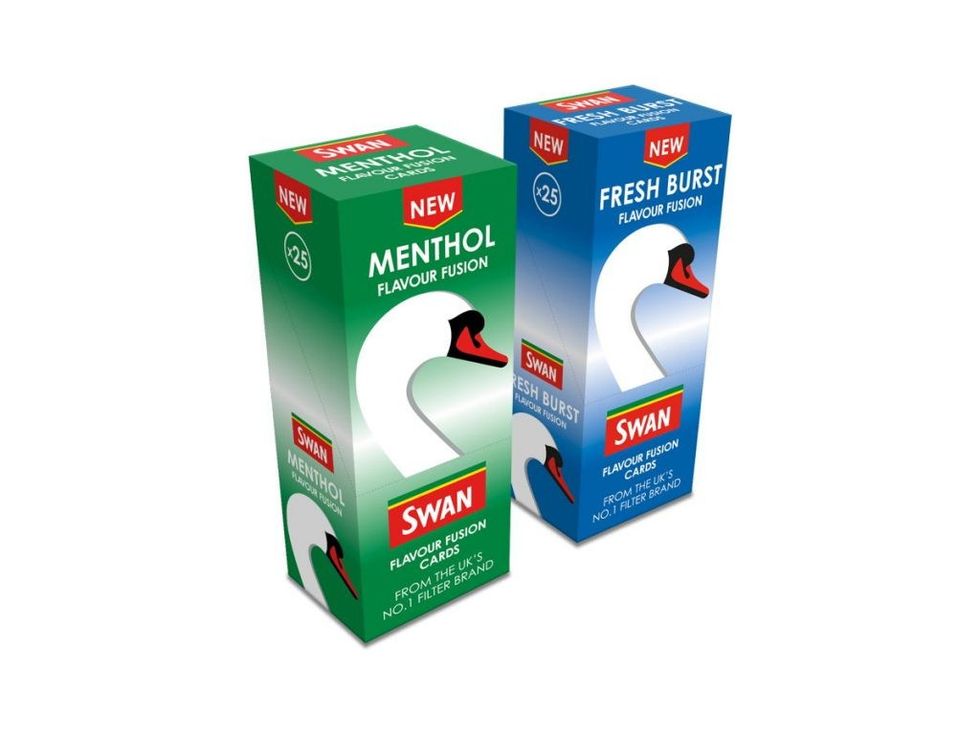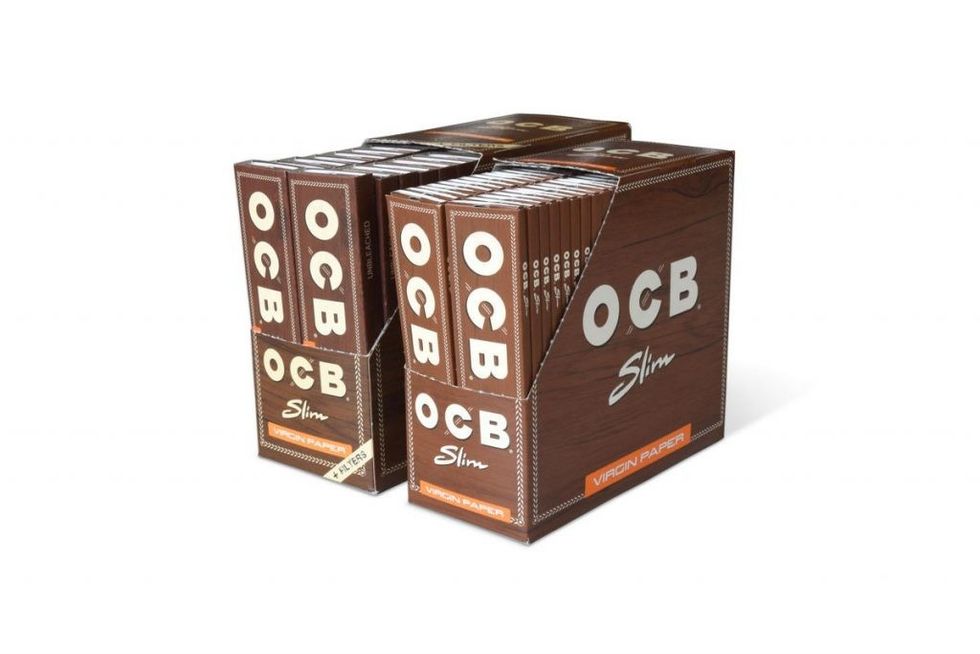It’s rare to find such a varied and colourful collection of brands combining so well to cater for a particular category, but at Republic Technologies, home of Swan, Cricket, Zig-Zag, OCB, Poppell and Bryant & May, among others, there seems to have been a natural growing together over the years – or rather centuries, because some of the brands stretch back to Victorian times.
Terry Elton, the UK managing director, has himself been at the company a fair time – “This is my 21st year,” he says – certainly long enough to know the company better than almost anyone. He is in the perfect position to talk to us not only about the future of Republic Technologies, but what lies in store for tobacco, in the light of unending government regulation and the ongoing vape revolution.
In other words, if you want to know about lighting up and smoking – what it means and where it’s headed – Terry is your man, even if he is a non-smoker himself.
“We work for a very smart entrepreneur over in Chicago–Don Levin,” says Terry. “He started with Top Tobacco and a few other things over in in the US. He was sourcing products from over here at Bolloré, in the South of France, which is now where Republic Technologies’ head office is. And it's grown from there.”
Levin steadily bought up paper mills and historic cigarette accessory operations as he grew his empire from the USA. Zig-Zag had started in the French Alps in 1894 and took as its logo the head of a Zouave – a French colonial infantryman from North Africa. The OCB brand began as the First World War ended, in 1918, and the initials come from Odet, Cascadec and Bolloré. The Bolloré family originally owned a paper mill on the banks of Odet River where it produced cigarette papers.
“I've seen a number of product launches – I've been involved in a huge amount of them to be honest,” Terry says of Republic’s growing product list, explaining that his present position is far from where he started out.
“I worked for Dun and Bradstreet and then Cisco Systems in Credit management. I came here in 2000 as a credit manager,” he says. “And I sat down with the MD and told him, based on what I saw while I was managing credit, that our supply chain was fundamentally wrong because the invoices weren't going out at the same time as the goods. And I think at the end of 2003 he said, right it's time to stop talking now and show us what you can do.”
Terry was supply chain manager until about a week before lockdown last year: “Santi [Santiago Sanchez, Republic Technologies’ Chief Executive] told me that the time had come for me to take charge of the business.
“The pandemic has not made life easy,” he admits, “but I have to say, I've got a fantastic HR Controller who, again, I've worked with for over 20 years. In fact, she employed me. She has been following the government guidelines closely and has given me really valuable guidance and advice. We've spent a lot of time talking to our people.”
The last year has been hard, but Terry says that the business is coming out of the lockdown period smiling: “We've had a really good, strong 18 months.”
Smoking and vaping have performed well during the pandemic, so to speak, just like convenience. Put them together – as you should, because tobacco and its substitutes are more than ever a corner shop mainstay – and the market must be looking very interesting.
“Basically, we strive to be experts in our field,” says Terry, keen to explain that with tobacco accessories you can maintain a point of difference in a broader category seen by many as controversial.
“We don't sell tobacco in the UK which I’m quite pleased about because tobacco brings its own complications. And that enables us to have a different perspective on the broader market and the role that accessories can play within it.”
A roll-your-own revolution
There is also a big change underway in the tobacco category. With the coming of vape, and its ability to give control of the experience to the vaper, has also developed a big swing towards loose tobacco to make roll-your-own cigarettes.
“It’s the experience,” Terry explains – there is a new culture of making and perfecting your own smoking experience that simply buying a packet of ready-mades does not offer.
“When you buy a tailor-made cigarette, you open the packet, you've got something in your hand which you then proceed to smoke,” he says. “When you smoke a roll your own, you've put however much tobacco you want in it, you've put what filter you want in it, you've chosen the thickness or the size of the paper, you've made it and rolled that yourself, you've licked the gum on the paper and stuck it yourself. It’s a much more tactile experience.”
Terry explains, using the infinite variety of vape products as an analogy, how the consumer can choose and modify every aspect of the RYO experience: “The reason people use thinner papers is because they want to give the cigarette more airflow. And giving it more airflow means it's smoother – learning how cigarettes are best enjoyed from a consumer’s point of view is the main aspect of the day job for us.”
I mention that in the old days regular cigarette smokers and rollie folk were two separate tribes, but that the situation has changed a lot recently.
“I think it started with ‘duallists’,” replies Terry. “You have the people who if they had money on the hip one week, they'd buy a pack of Marlboro, and if they didn't they’d buy a pouch and make their own.
“Twenty years ago, maybe 10 or 15 per cent of people used a filter. Whereas that number is pushing up towards 50 per cent now.”
The idea behind Terry’s strategy is that there should be a one-stop shop. “So if they want everything you need to light that cigarette, make it, roll it, we do the lot. So rolling machines, matches, lighters, flints or even flavour cards, we offer everything.”
Lighters are another big thing, he says, especially since a major rival recently left the scene. “What we're seeing now is that there is a window in the market where people are looking for candle lighters and utility lighters, and we've always had them under the iconic Cricket brand, which is one of the Swedish Match brands,” he says.
“But we've developed a new, broader range, where we ensure we have an option for every occasion. You don't want to be trying to use 15 matches to try and light 10 candles,” he laughs,“you want one device so you can just go around that room and light all those candles.”
Now, sustainability is becoming a big consideration for people when they use products in general, and this extends to the wrappers on filters and the way papers are produced (OCB is biodegradable and supports rain forests). Terry is proud that Republic Technologies is focused on growing greener – trying to make the acetate in the tubes of filter tips biodegradable, for example.
But at the same time he has to supply the product the market is asking for. “Not everybody will like an eco-filter, for example, because it has a slightly different taste or will have a slightly different draw characteristic. If you take away what people use, it would be like Heinz changing its tomato soup. People may prefer it from a pouch you can recycle, but if it's the wrong flavour, they're not going to like it. So we have to be careful that we don't change that flavour and don't change what people are expecting. It's a challenge.”
Products for people
It may be a challenge, but Terry promises five or six more eco-tinged product launches this year, which we will be told about in due course. The market for accessories is big and growing, Cigarette filters are worth about £100 million per year, and Terry estimates the total market is £310 million, with papers at £97 million and lighters around £74 million.
“We don't kid ourselves,” says Terry, “we know that Rizla has a strong place in the market. But the fastest growing mainstream paper – again because of experience - is OCB, giving the brand a strong foothold in that market.
The demand for filters is growing and Terry is confident Republic Technologies continue to be the market innovators. “We launched six new filters last year and the Swan Fresh Burst capsule filter is already the best-performing filter of its kind in the supermarket/high street/convenience supermarket sector.”
Fusion or flavour cards are some of Republic’s latest introductions to the market for RYO tobacco and FMCs – like capsule filters, designed to replace the minty-ness that the menthol ban sucked out of cigarettes. They are the latest big thing, coming up fast with a market value already at £18 million. Early feedback indicates that Swan branded flavour cards are considered a must stock item by many retailers.
“The Fresh Burst and the Menthol flavour cards are where we've given people that ‘mint hit’ experience,” says Terry. “It’s where you have the strong bite of cold mint, that cool sensation of spearmint, and we tried to give people both, in order to give them that barrier between the harshness of tobacco a menthol smoker is used to.”
Feedback shows that smokers were not prepared for or even aware of the menthol ban and didn't realise that suddenly they were going to lose their menthol cigarettes. With regard to filters and fusion cards, then, he says it was a tough year “in terms of supply, being able to keep all of our customers in stock was a challenge. And we are very conscious about supplying in full.”
The result was, however, that 2020 was a strong year for Republic. “We had double-digit growth. And then we've got double-digit growth again so far this year. So, we're doing okay.”
The big takeaway from the amazing tobacco accessories figures, however, is that 75 per cent of all the market revenue goes through the convenience channel (source: IRI Tracked Data).
“Not many FMCG categories have that balance,” says Terry. Accessories are, in fact, the one category that is most cemented in the convenience channel. The variety of Republic’s products, and the inventive new ways that they can be displayed, are all helping to strengthen the company’s reputation, sales and ambition.
“Wegive the consumer that ability to go in and make a choice. When you're directed by ‘This is what we've got and that's what you can choose from’, that makes it so much more restrictive in terms of what the shopper is looking for,” says Terry, and he explains why the two – convenience and accessories – go together like a horse and carriage.
A marriage of convenience
“When you're in convenience, you have this wide area of things you can see, it just gives people that ability to say, Well, I’ll try that one this time, then I'm going to try that one. And shopkeepers become the experts. I’ve a local Londis near me and I'll ask the question, how's that one selling? How's that doing? They go, that's okay. But this one's really good. You want to try this one’. It's almost like they’re talking as a member of our sales team.”
Terry believes the whole RYO smoking experience is enhanced by the channel, “because when you walk into that convenience store, they're trying to guide you with knowledge based on experience, whereas when you walk into a large supermarket and you walk around, if it's on the shelf, you can buy it. But if it’s not on shelf, the likelihood is you won’t be introduced to an alternative option by one of the supermarket staff.’”
He says convenience has always been important to Republic. “Convenience is becoming more relevant. Lockdown has proved this to people and the whole being-close-to-home, shopping local, will continue because people are actually enjoying it.”
He is going big on making the most of shrinking gantry size by helping retailers get Republic wares on the counter-top – where the diminutive size of paper and filter displays can be a big advantage.
“It's all about the brands fighting for that space from a cigarette point of view, because they need to have as much there as they can have. So what we've tried to do is say “Look, if you haven't got room in the gantry, we understand that. So what we'll do is, we'll make something at our expense, that means you have some way of still showing people that these products are available.”
Terry says that Republic Technologies can happily do that because they're not held under the same legislation as tobacco. “You can use filters and papers as a signpost for the broader range of tobacco (where legislation allows). We find that many retailers already use cigarette lighters to convey to their customers that they have a good range of tobacco-related products available, all of which are usually displayed in a safe location.”
“What we've tried to do is design options for convenience that gives them the ability to display them out in front. The small OCB display, for example, it holds nearly enough to have a full outer of paper. But what it's doing is giving you three different products where you can give people the choice. The same with the filter dispenser, and now we've done a new one with the flavour cards. It's small and will only hold four outers. But for the retailer, you know that £40-£50 worth of product on shelf is in a space that’s smaller than what’s needed for a chewing gum rack.”
Where profit and shelf-space are at odds, accessories are a clear winner. Republic is backing up its display strategy with a sales-force boost to help retailers take advantage of the swing towards RYO and other accessories.
Again, he says, this is about the retailer being able to sell the products he wants to sell within a small space, and making sure the full range is there and well-stocked.
“Convenience is about availability,” says Terry,“and there is nothing worse than going to a corner shops because you need milk and eggs, and when you get there they haven't got any. Same thing for our products:late at night or when you decide you want to go sit in the garden and have a cigarette,it’s about having the availability of the products you want. We understand how important availability is to them as much as it is to anybody else.”
With this philosophy in mind, Republic have also specifically designed outers and case sizes for convenience.
“Wherever we can,” nods Terry. “It’s to make it so the outright purchase for the convenience retailer is smaller. When we're delivering into wholesale, you may be putting 30, 40 or 50 into a case. And what we're trying to do is make smaller cases for convenience. But at the same time we're looking at how to make the space or footprint of those products smaller as well – and have we made it as consumer-friendly as we can:have we taken the plastic out of it, if we can?”
He says this care for design is backed up by a sales force with expertise in educating retailers so they can sell more product. “New field salespeople will be taken into the warehouse, and they'll pick products for a day, so they understand what the product sizes are, how they're sold, what's in them,” he explains.
If the salespeople understand all these fine gradations of smoker experience, they can pass it on to retailers as they educate about the intricacies of each product. Retailers can then educate the customers – the growth in the category has shown the importance of this sort of expertise – and the market demand can be solidified with good knowledge and advice.
This is the experience that will cement the importance of convenience for Republic’s market, and Terry is certain that the future for the partnership is bright.
“Some of our strongest growth through the pandemic has been in convenience,” he says.“Consumers have been hesitant to walk into shops where there could be large numbers of people shopping at the same time. We're trying to create products that give them the experience that says,‘I enjoyed that, I want to try that again.’Convenience is really key to us. We are growing and convenience has been a big player in that and a big part of that success.”
I suggest that the mix of searching for value, but together with the premiumisation of experience is a perfect combination for the products that Republic Technologies supplies “We won’t always be the cheapest on shelf, we understand that,” says Terry. “But what we can guarantee is that with the brand heritage that's behind us, what you're buying will do what it says it does. I think there’s a drive towards shop local, shop with experience in mind, and doing something where you think you're supporting your local community, but at the same time, you're getting value for money. And I think that's where the market is still heading.”








